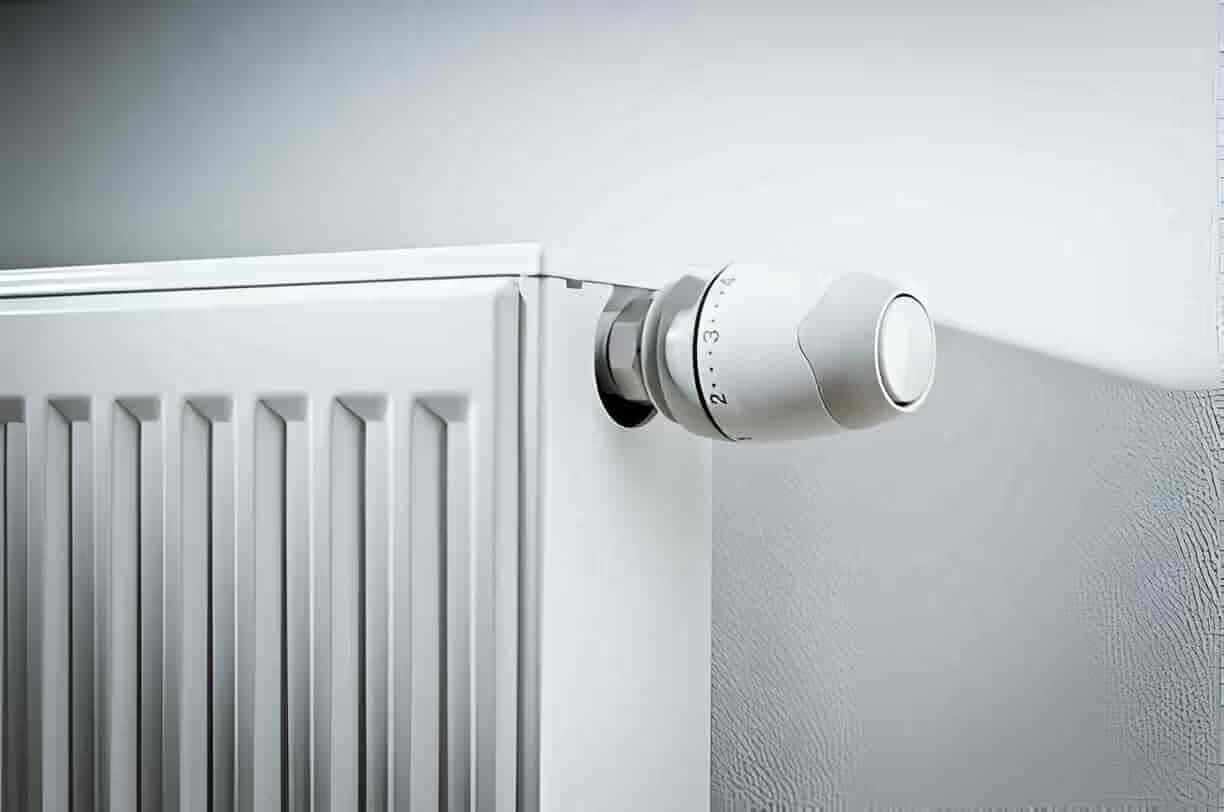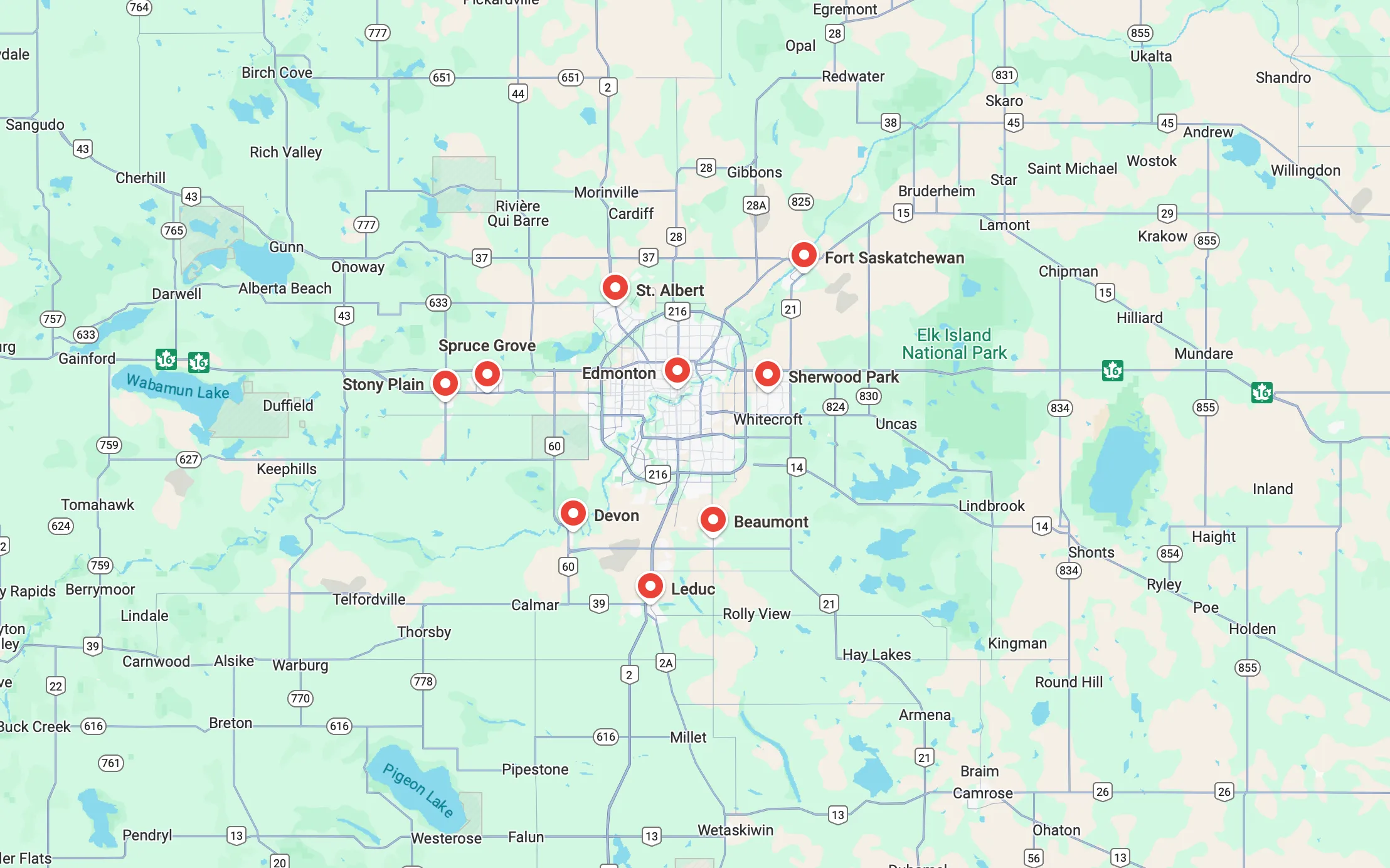Heating Tune-up in Devon, AB
Heating tune-ups in Devon, AB provide cost-effective prevention, safer operation and improved energy efficiency by addressing filters, ignition, airflow and system controls before winter. A professional visit follows a comprehensive checklist-from safety and combustion testing to thermostat calibration, duct inspection and performance testing-to identify issues, extend equipment life and reduce mid-season failures. Regular annual maintenance, plus appropriate seasonal packages, helps homeowners avoid sudden breakdowns, lower energy bills and maintain consistent comfort throughout the heating season.

Heating Tune-up in Devon, AB
A seasonal heating tune-up is one of the most cost-effective ways to reduce unexpected breakdowns, improve comfort and lower energy costs for Devon, AB homes. With long, cold winters and wide temperature swings in the spring and fall, your heating system works hard and shows wear that’s easy to miss. A comprehensive tune-up identifies small problems before they become emergency repairs, verifies safe operation, and helps your system run closer to its designed efficiency.
Why a tune-up matters in Devon, AB
Devon’s climate puts extra strain on furnaces, boilers and heat pumps. Extended cold snaps, freeze-thaw cycles and dusty spring/summer conditions can lead to:
- Clogged filters and restricted airflow that increase fuel use and wear
- Ignition or burner issues on gas systems caused by dirt and vibration
- Short cycling from failing controls or thermostats, shortening component life
- Moisture- or debris-related corrosion in outdoor units and ducts
A seasonal tune-up addresses these factors so your system starts the heating season safely and efficiently.
What a heating tune-up inspects and maintains
A professional heating tune-up follows a structured checklist to cover safety, performance and efficiency. Typical items include:
- Safety checks
- Visual inspection for rust, corrosion, leaks and signs of wear
- Combustion safety and venting inspection (for gas/combustion systems)
- Carbon monoxide risk assessment and flue/vent clearance check
- Burner and ignition cleaning and adjustment
- Clean burners, flame sensors or pilot assemblies
- Inspect and test electronic ignition or pilot systems for reliable startups
- Adjust burner settings for proper flame characteristics and combustion
- Thermostat calibration and controls
- Verify thermostat readings and setpoint accuracy
- Check wiring, programmable settings and control response
- Test safety and limit switches to ensure correct system behavior
- Airflow and ductwork checks
- Inspect filters, registers and returns for blockages
- Measure basic airflow to identify restricted return or supply paths
- Check duct joints and visible insulation for leaks or damage
- Electrical, mechanical and refrigerant checks (as applicable)
- Tighten electrical connections, test capacitors and relays
- Lubricate motors and moving parts where required
- For heat pumps: check refrigerant charge and defrost cycle function
- Efficiency and performance testing
- Measure temperature split across the heat exchanger or coil
- Monitor cycling behavior and run diagnostics to identify inefficiencies
- For combustion systems: visual combustion assessment and draft check
- Filter and indoor air quality recommendations
- Replace or recommend appropriate air filter type and schedule
- Recommend humidity management or indoor-air upgrades if needed
Typical outcomes you should expect
After a proper tune-up you should notice:
- Safer operation with lower risk of carbon monoxide incidents or dangerous malfunctions
- More consistent indoor temperatures and fewer hot/cold spots
- Smoother startups and fewer short cycles
- Improved equipment reliability and reduced chance of mid-winter failures
- Better fuel or electrical efficiency that helps control monthly heating costs
- Clear documentation of system condition and recommended next steps
Recommended frequency
- Annually, before the heating season: standard for most Devon homes to catch issues before heavy use.
- Twice a year: consider for older equipment, multi-family properties, or homes with previous reliability problems.
- After major repairs or long idle periods: any time a major component is replaced or the system has been unused for months.
Seasonal timing is important: scheduling a tune-up in late summer or early fall ensures the system is clean, adjusted and tested before sustained cold weather.
Typical service packages (scope descriptions)
Services are commonly offered in tiered packages so homeowners can choose coverage that matches system age and needs:
- Basic Tune-up: safety inspection, filter check/replacement, thermostat check, basic burner/ignition cleaning.
- Comprehensive Tune-up: full checklist above plus airflow measurement, electrical tightening, lubrication and basic duct inspection.
- Deluxe Seasonal Maintenance: comprehensive tune-up plus prioritized diagnostics, outdoor unit service for heat pumps, and seasonal performance reporting.
Package selection depends on system type (furnace, boiler, heat pump), age and any known or recurring issues.
Common heating problems found during Devon tune-ups and simple fixes
- Dirty filters and restricted returns - replace filters and clear vents to restore airflow.
- Ignition failures or intermittent pilot issues - clean sensors and verify ignition components.
- Short cycling - repair or replace faulty controls, check thermostat placement and calibration.
- Reduced heat output - clean burners, check heat exchanger condition, and verify proper airflow.
- Heat pump defrost cycle faults - inspect defrost control and sensors, service outdoor coil.
Identifying the root cause during a tune-up prevents repeated symptom fixes and reduces long-term repair costs.
How tune-ups prevent breakdowns and reduce energy bills
Regular maintenance keeps moving parts properly adjusted and electronics functioning as intended. Clean burners and properly calibrated thermostats reduce wasted fuel and electrical consumption. Correct airflow and sealed ductwork mean your system doesn’t have to run longer to reach set temperatures. Taken together, these improvements lower the likelihood of sudden failures during cold weather and help your system maintain higher seasonal efficiency.
Homeowner maintenance tips between professional tune-ups
- Replace or clean filters every 1–3 months depending on filter type and household conditions.
- Keep supply and return vents clear of furniture and debris.
- Check thermostat batteries and settings seasonally; avoid placing thermostats near drafts or heat sources.
- Keep outdoor units (heat pumps) free of snow, ice and yard debris during winter months.
- Install and test carbon monoxide detectors on every level for combustion safety.
A few simple habits extend service intervals and improve safety.
Final notes
A thorough heating tune-up is an investment in comfort, safety and predictable home energy costs for Devon, AB residents. Annual inspection and maintenance reduce emergency repair risk, help equipment reach expected lifespans and keep heating systems operating efficiently through the region’s demanding winters. Regular documentation of system condition also supports long-term planning for replacements or upgrades when they become necessary.
Customer Testimonials
Hear from satisfied customers who trust us for reliable HVAC and plumbing service across Edmonton
















Customer Testimonials
Hear from satisfied customers who trust us for reliable HVAC and plumbing service across Wichita.
Service Areas


